Israel-Hamas War - What happened on day 70?
Netanyahu on killing of Gaza hostages: We will lick our wounds, learn our lessons • Sirens sound in Israel's capital of Jerusalem
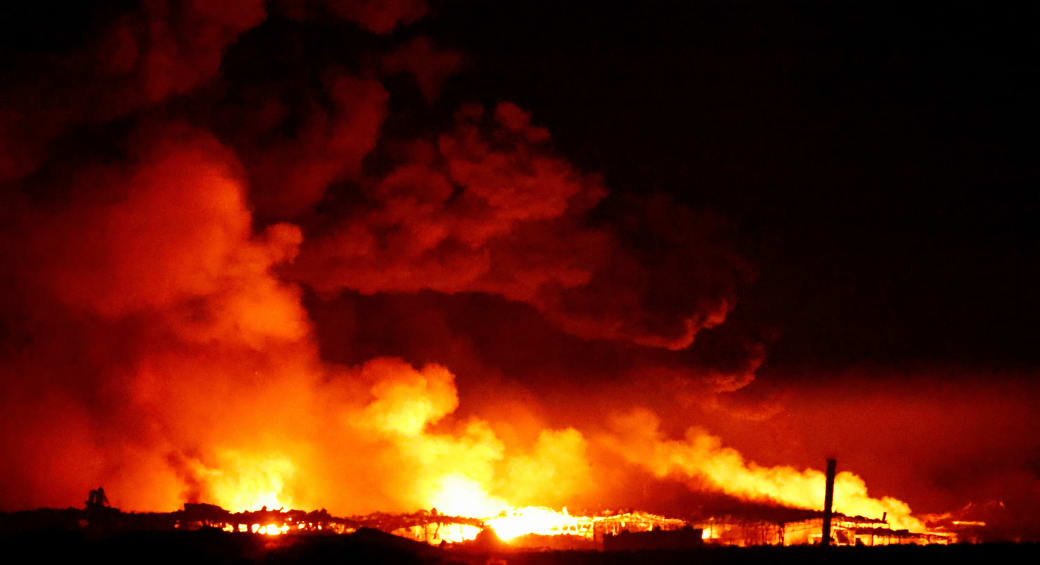

IDF mistakenly kills three hostages in Gaza
An investigation has been opened into the circumstances of the killing of the three hostages.

During operational activity in the Gaza City neighborhood of Shejaia, IDF troops killed three hostages taken by Hamas after mistaking them for terrorists, IDF spokesperson Daniel Hagari said on Friday evening.
The three victims include Yotam Haim, who was abducted from Kfar Aza on October 7 and Samer Talalka who was abducted from Nir Am on the 7th.
During fighting in Shejaiya, Gaza, an IDF force mistakenly identified three Israeli hostages as a threat. They opened fired and killed them.
— Aviva Klompas (@AvivaKlompas) December 15, 2023
The bodies were returned to Israel and identified as:
🕯️ Yotam Haim, abducted from Kfar Gaza
🕯️ Samar Fouad Talalka, abducted from Nir Am… pic.twitter.com/Cx6KbGw7RH
The family of the third victim asked that they not be identified.
Identifying the bodies
The IDF said that following the incident, acting on a suspicion of the identities of the deceased, their bodies were brought back to Israel for examination where it was determined they had, indeed, been among the hostages.
The IDF added that an investigation was immediately opened into the circumstances of the event. So far, the details regarding what happened have not yet been discussed with the public.
This is a developing story.
Go to the full article >>IDF destroys Hezbollah positions as troops train for combat on Lebanon border
IDF aircraft and artillery demolished a Hezbollah position from which rockets had been fired at Israel earlier in the day.
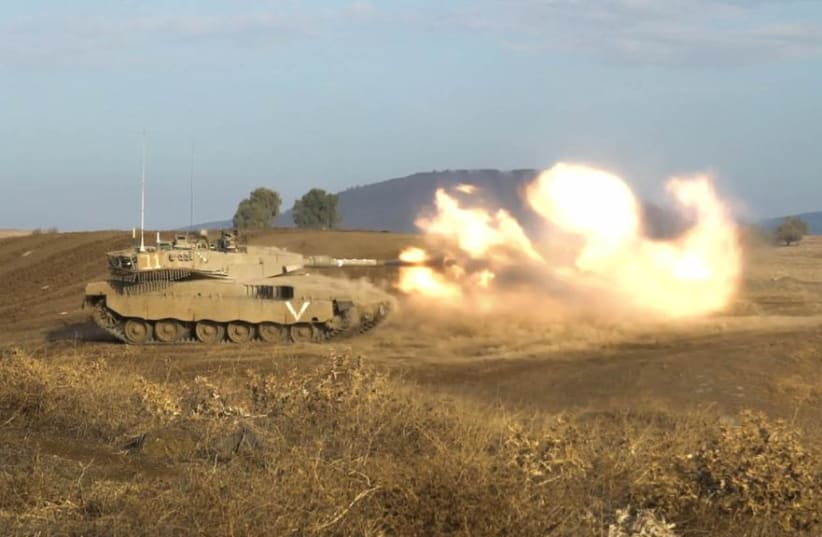
IDF air force aircraft, combat jets, and artillery destroyed several Hezbollah terror targets in Lebanon on Friday, the IDF stated.
Among the Hezbollah military positions targeted was a launch site from which rockets had been fired at northern Israel earlier in the day, the military stated.
Several rocket alerts sounded in northern Israel on Friday, after which the IDF claims it identified a number of launches originating from Lebanon.
The IDF said that some of these launches were intercepted according to standing policy.
IDF air defense systems often do not target incoming rockets that it identifies as having a trajectory indicating an impact site in open, unpopulated areas.
On Thursday, it noted that one in five rockets and missiles fired from Lebanon never cross into Israel, and instead fall short inside Lebanese territory.
Additionally, the IDF said on Friday that Israeli air defense capabilities had downed another suspicious aerial target before it succeeded in crossing into Israeli territory from Lebanon.
Further, a drone originating from within Lebanese territory fell near an IDF post near the Israeli border community of Menara, north of Kiryat Shmona.
Also on Friday, the IDF announced that both regular and reservist troops have been taking part in a military exercise dubbed “Valuable Time,” in northern Israel over the course of the Gaza war in preparation for combat scenarios that could take place near the border with Lebanon.
Israel's pre-October 7 protocols: Netanyahu boasted about Hamas deterrence
Netanyahu: "Time will tell if the balance of deterrence [in Gaza] has changed or not. I think it has."
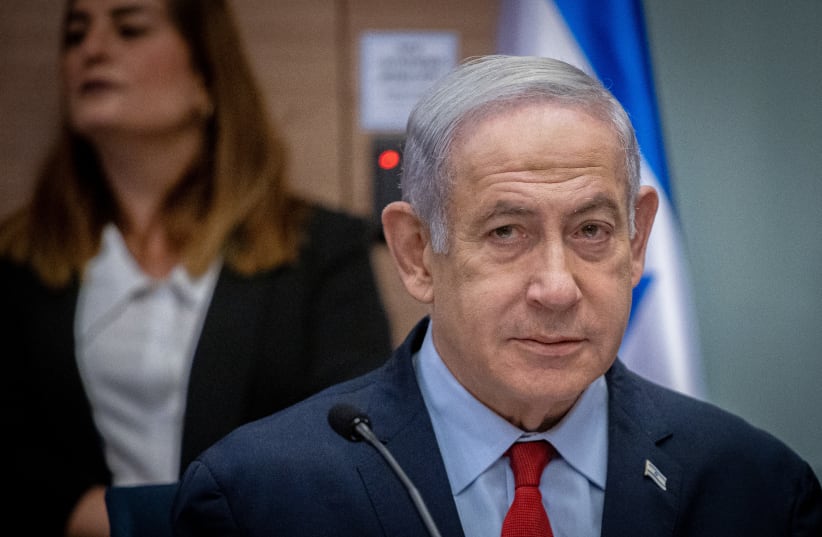
Prime Minister Benjamin Netanyahu was alert of the danger of a multi-front war that included fighting in the Gaza Strip, protocols from defense briefings dating to June 13 and reported by Ben Caspit on Friday show.
On June 13, the Knesset's Defense and Foreign Affairs Committee convened to receive a security briefing from the prime minister.
Those were the days of arrogance.
"Time will tell if the balance of deterrence [in Gaza] has changed or not. I think it has."
Prime Minister Benjamin Netanyahu, June 13
Netanyahu's days of arrogance
Prior to October 7, and the IDF's subsequent war on Hamas in the Gaza Strip, Netanyahu was asked several times about warnings from the Military Intelligence Directorate, the IDF chief of staff, and the Mossad chief.
Every time, he has claimed these warnings amount to hyperbole.
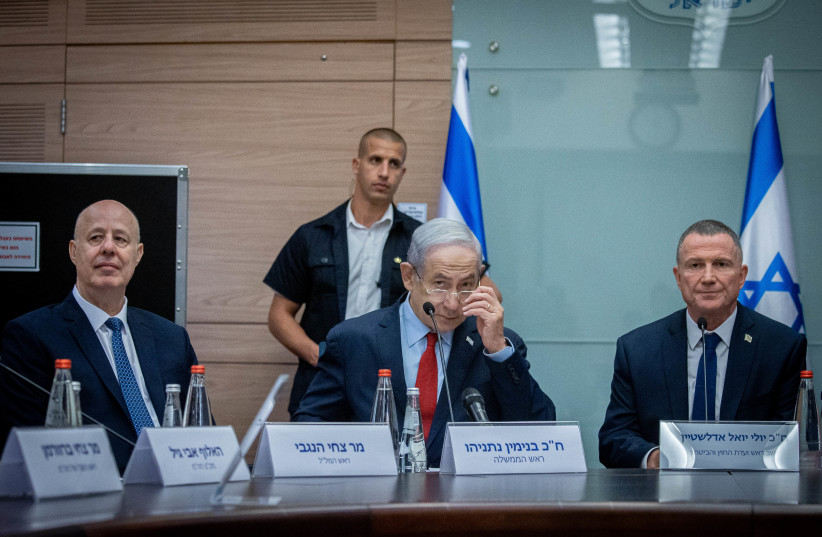
Along with Netanyahu, present at the briefing were his chief of staff Tzachi Braverman, National Security Council head Tzachi Hanegbi, and military secretary Avi Gil. Also present was the committee's head, MK Yuli Edelstein, along with 20 MKs from the coalition and opposition, most notably former chief of staff Gadi Eisenkot.
Netanyahu spoke at length about Iran, a "global vision," regional alliances, even artificial intelligence and its use on the battlefield. The quotes shown below are taken verbatim from the protocol.
"What can we do against Iran and its proxies?" Netanyahu asked himself. "First of all, we prepare of a multi-front war.
"Let's make it clear, we do not have and we will not have the luxury of isolating fronts. That means Iran, that means Lebanon, that means Gaza. It could also reach other theaters," Netanyahu was quoted as saying.
'Israel's problem - surrounded by radical Islam'
The prime minister was aware of the possibility of a regional war, including Gaza. He was later asked about Israel's deterrence in the Strip. "In Gaza, it depends on how strong you are," he said.
"There is an issue that needs to be solved - how do you live in an area surrounded by radical Islam sitting on your fence? This is in Gaza and Lebanon, almost like what happened in Syria."
"Time will tell if the balance of deterrence [in Gaza] has changed or not. I think it has," Netanyahu told the committee.
"How do you live in an area surrounded by radical Islam sitting on your fence?"
Prime Minister Benjamin Netanyahu, June 13
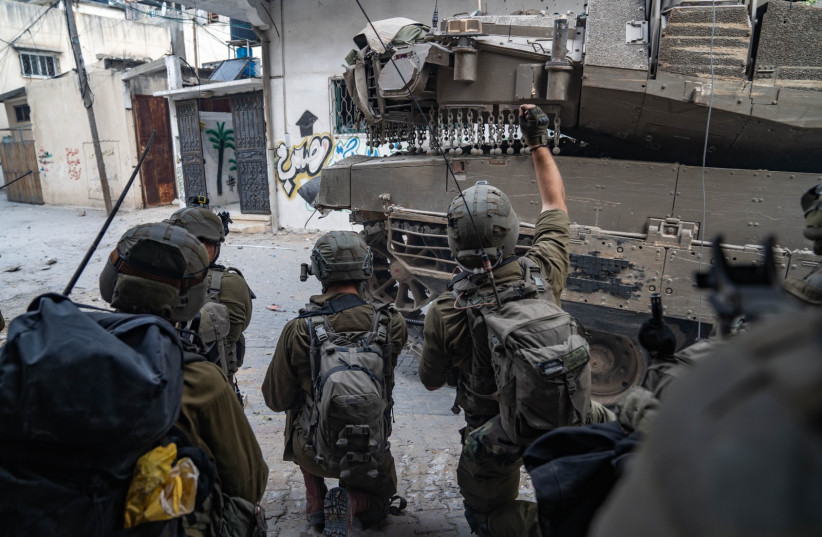
Netanyahu boasted about recent Gaza operations
Netanyahu then began boasting about the IDF's recent successful operations against the Palestinian Islamic Jihad in Gaza, during Operations Breaking Dawn and Guardians of the Wall. "We surprised the Jihad, because of our intelligence capabilities and mostly because of artificial intelligence," Netanyahu revealed.
"Operation Guardian of the Walls was very effective, it dropped Hamas back," Netanyahu said. "But we need to prepare for the possibility that they or us will escalate [into a war]. The fact we do not want it, does not mean it will not happen," Netanyahu said, four months before the massacre of October 7.
Go to the full article >>Hamas rigs children's backpacks, dolls, in ambush on IDF forces in Gaza
The explosive-laden children's items contained speakers that played crying noises in an attempt to lure in and kill soldiers, the IDF reported.
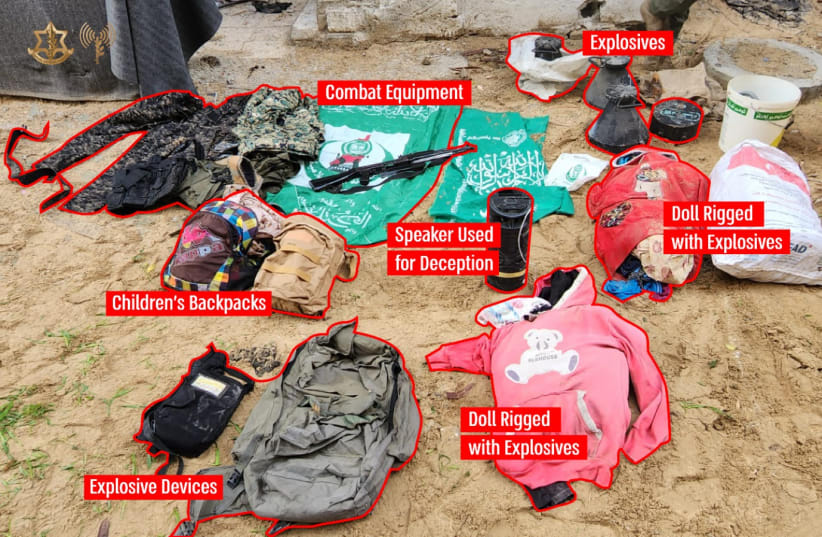
The IDF located and exposed a Hamas terrorist ambush at the entrance to a tunnel shaft, using dolls and children's backpacks in an attempt to lure soldiers in hopes of finding hostages, the Israeli military said Friday.
The items, which contained speakers playing crying sounds, were placed near a tunnel shaft which connects to a large network of tunnels that extends over a school and a medical facility in the Gaza Strip, the IDF said.
The IDF added that the tunnel led to a Hamas command and control center based in a mosque that had been fitted with cameras to monitor the activities of Israeli troops in the vicinity.
Hamas command center leeches medical clinic's power supply
Further, according to the military, the Hamas command center was connected to the medical facility’s power supply.
Additionally, the IDF said that it had identified Hamas anti-tank and intelligence assets in the area as well as a large amount of explosives that had been deployed to target IDF soldiers.
Go to the full article >>IDF announces more fallen soldiers killed in southern Gaza
Sgt. First Class Shay Uriel Pizem, 23, from Kibbutz Ein Hanetziv, a tank commander in the 401st Brigade, fell in battle in the southern Gaza Strip on Friday, according to the IDF Spokesperson's Unit.
Staff-Sergeant-Major Tomer Shlomo Myara, 28, from Netanya, of the 70th Battalion was also killed fighting in southern Gaza on Friday.
The IDF announced earlier on Friday that Sgt. Oz Shmuel Aradi also fell in the battle in southern Gaza. Aradi, 19, from Kibbutz Hatzur, was a soldier in the 603rd Engineering Battalion.
Go to the full article >>
IDF establishes logistics center in Gaza in first since First Lebanon War
The large center, between dirt embankments, has been nicknamed "Formula 1" - a reference to the refreshment stops of race drivers.
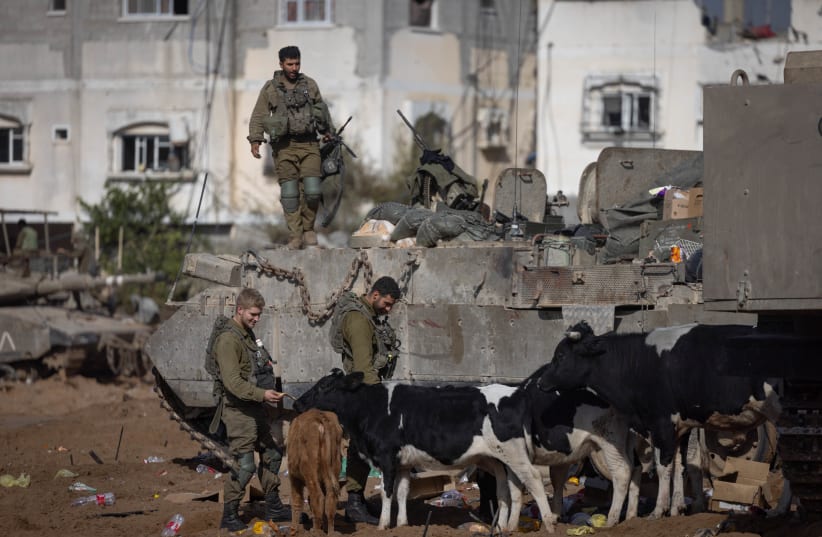
While officially, the State of Israel refuses to deal with the "day after" the war in Gaza, at least according to what is happening on the ground, it seems that preparations are being made for the possibility of an extended stay of the IDF in the Gaza Strip.
Between the outskirts of the Jabalya neighborhood of Gaza City and the coast of Gaza, this week we joined the IDF forces that entered the Strip, and we saw how amid the heavy fighting, which is still ongoing, and which, unfortunately, also claimed heavy casualties this week, Israel is deepening its logistical hold on the ground.
The main complex we visited is a multi-purpose forward logistics center which was established in the area. Since the First Lebanon War 41 years ago, the IDF has not established an infrastructure of such scope outside the borders of the State of Israel.
"We are now operating closest to the fighters," said Col. (Retd.) Mor, who commands the new compound. "We allow the continuity of combat to be maintained. The fighting force knows that there is someone waiting for them on the spot and providing all the immediate logistics. It is no longer necessary to travel 7 km to the Israeli border. Everything is already accessible inside the combat area. We have created the new border line of the war."
The changes that the war caused to the Gaza Strip are already visible from the border fence. After driving through the Zikim camp, the last vestige of the October 7 massacre is a burnt scooter lying next to the fence, a silent memorial to the mass entry of Hamas terrorists into Israeli territory.
On my previous tour in the north of the Gaza Strip, about five weeks ago, I drove on a makeshift sandy road, and a tank accompanied our convoy of Hummers, which was on its way to the area of the Shati refugee camp. A military policeman then raised a makeshift roadblock for us in order to allow the troops to enter and exit the Strip.
The Steel Corridor
The makeshift barrier at the border was replaced by an electric barrier, and the dirt road, which is one of the two new entrance arteries to the Strip, has already been nicknamed the "Steel Corridor." The road which was once makeshift is now surrounded by earthen embankments, designed to increase the safety and security of the forces in controlling a large area.
The surreal sights around have not changed: against the background of the waves of the beautiful sea of Gaza, the ruins of the buildings on the coastline stand out. Vacation homes, hotels, resorts, vestiges of which remains and the destroyed promenade - evidence of a completely different life that existed here until the disaster that Hamas unleashed on the residents of the Gaza Strip.
The military presence is noticeable throughout the area, and after driving about 7 km, we are greeted at the entrance to the logistics center by a reservist, who announces with a wave of his hands, "Am Yisrael Chai."
"We have now traveled on the steel corridor, which is the lifeline that allows the logistics forces to be brought into the depth of combat. The guys are brave and also work in logistics missions under fire at all hours of the day," Lt. Col. Moore, the logistics officer of the 162nd Division, told us at the entrance, adding excitedly: "This is the first time in four decades that a forward logistics center has been set up."
The logistics center also includes ambulances for treating and evacuating the wounded and a helipad nearby, and it simultaneously serves as a center for providing an immediate response to a variety of needs. The commanders in the field speak proudly of the impressive logistical operation, but are careful not to provide predictions about how long it will operate. They also understand that that is already an issue with strategic and policy-dependent consequences.
'Formula 1' treatment
The large center, between dirt embankments, has already been nicknamed "Formula 1" - a reference to the refreshment stops of the famous race drivers.
"There is a supportive envelope here, which includes repairs for armored vehicles and their quick return to service, and at the same time - gives the warriors who arrive with the vehicles a refreshment of hot meals, showers, and washing machines," said Col. Moore. "Speed and refreshment are as important to warriors as they are to drivers in Formula One."
The center includes a fuel complex, capable of supplying approximately 80,000 liters of diesel, which is piped from Israeli territory to armored vessels, tankers, and a water line. The center is divided into complexes, each of which has a dedicated activity: a medical complex, a complex for evacuating the wounded and for treatment, and a combat maintenance complex, where complex maintenance for vehicles and armored fighting vehicles are carried out. It also includes hot showers, a clinic, a synagogue, mobile laundries, and telephone booths.
Next to me, Artyom, 43, from Haifa, is working on a Merkava Mark 4 tank which was hit twice by an anti-tank missile and an explosive device. "The tank survived the impact, the crew members were not injured, and it will soon be returned to operational fitness," he said proudly. "My son is also now being recruited in Gaza, and I am trying to meet him."
The driver of the tank, Netanel from Rosh Ha’ayin, who is married and the father of two daughters, said about the moment of the impact: "There were explosions and we felt them, they caused the filter houses to burn, and after replacing them and returning the tank to full service, we will return to fighting. In the meantime, we are here refreshing ourselves. The tank is a part of us."
According to the tank commander Eliav, the two terrorists who carried out the shooting were identified and eliminated by infantry fighters who were nearby.
The long stay in Gaza provides inspiring personal and family stories. Lt.-Col. Mor, 34, and Lt.-Col. Efrat, 35, have been serving as NCOs for many years in a variety of positions. The challenging military service became for them a way of life with a sense of mission. The meetings with the officers and the regular and reserve soldiers, who work day and night against the background of the ruins of the buildings from the war on the one hand, and the rough sea and the spectacular sunsets on the other - create a fascinating mosaic of Israeli society.
Lt.-Col. Mor, who grew up in Kiryat Shmona and currently lives with his wife and two children in Eilat, has rarely seen them since the outbreak of the war. "My wife is a hero, she is a school teacher and takes care of children," he said. "My family is from Kiryat Shmona, and her family is from Safed, and Eilat is far away. I've seen them a few times since October 7. It's not easy, but it's better to make the big effort now and provide our children with a different place to live, a safer place."
Lt.-Col. Efrat, who lives in the settlement of Nili, is married and a mother of three children, and does not see her family often. "I saw them a few times, I'm lucky to have WhatsApp. My husband works in the defense industry, and because of the war he also has to work many hours every day. The grandparents are very helpful," she said. "We have a strong home front that understands our mission, and we will be here as long as necessary. We are all determined to carry out the tasks."
Not far from the "Formula 1" complex, on the outskirts of Jabalya, I notice a cloth sign with the name and phone number of a real estate agency in Israel.
"One day, after the houses here are restored, they will be worth a lot of money - after all, these are buildings on the first line to the sea. Think how much it costs in Tel Aviv," Yoni, 24, told me in dark humor. As a civilian, he's an apartment broker from Ramat Gan, and now he's recruited in the logistics center.
Maybe one day this beautiful area, which was turned into ruins by horror and war, will become a paradise again.
Go to the full article >>US building int’l coalition to halt Houthi threat to global shipping
“This is not about the US and Israel, this is about the entire international community,” Jake Sullivan explained.
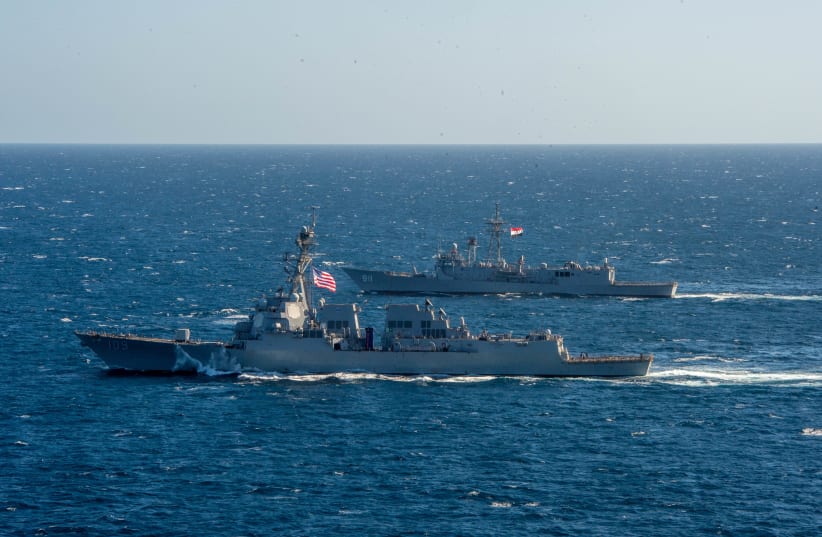
The Biden administration is building an international coalition to halt the threat the Iranian-backed Houthis pose to international shipping routes in the Red Sea, US National Security Adviser Jake Sullivan told reporters in Israel on Friday.
“We will continue to take every step we deem necessary and appropriate to deal with the threat the Houthis pose,” he said, adding that US Secretary of Defense Lloyd Austin would tackle this issue during his visit to Israel and the region next week.
“That response shouldn’t just be [from] the US. It should be a broader coalition of countries working together in concert,” he said.
The Houthis have said they are attacking ships to protest Israel’s military campaign to oust Hamas from Gaza, but Sullivan said the issue was particularly given to Iran’s involvement.
“We are building a coalition we are working to ensure and rally the nations of the world, all of whom have an interest in seeing this stop,” Sullivan said.
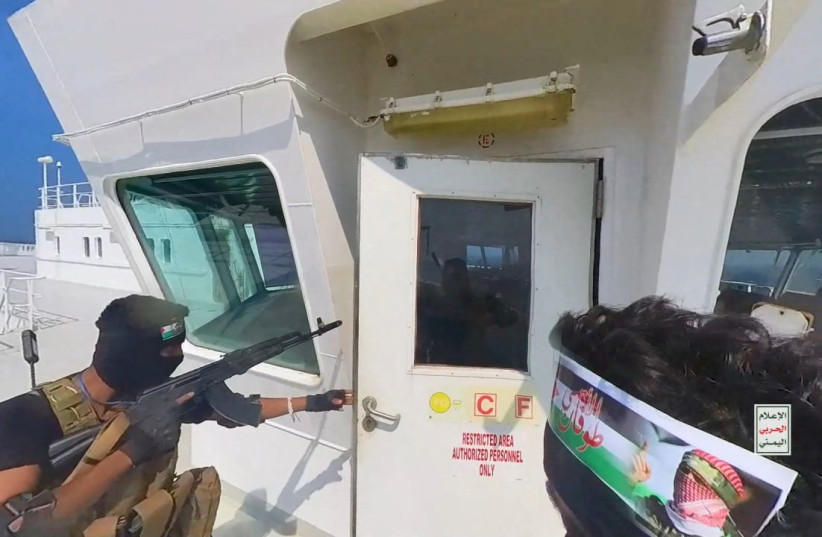
“While the Houthis are pulling the trigger they are being handed the gun by Iran and Iran has a responsibility to take steps themselves to cease these attacks because they are a fundamental threat to international law and international peace and security,” he said.
“This is not about the US and Israel, this is about the entire international community,” Sullivan explained.
“The Houthis represent a material threat to freedom of navigation to commercial shipping, to lawful commerce and they are doing so in a vital artery,” he added.
“The US is working with the international community, with partners from the region and from all over the world to deal with this threat,” he added.
Houthis continue attacks on maritime traffic
He spoke as a Liberia-flagged container ship sustained damage from an "aerial attack" as it was sailing through the Bab al-Mandab strait, causing a fire on the deck and a container to fall overboard, the British maritime security firm Ambrey said on Friday.
Ambrey reported the vessel was owned by Hapag-Lloyd AG HLAG.DE and had been sailing south through the Bab al-Mandab strait in the southern Red Sea when it was attacked by a projectile 50 nautical miles north of the Yemeni Red Sea port of Mokha.
Yemen's Iran-aligned Houthis have been attacking vessels in Red Sea shipping lanes and firing drones and missiles at Israel since the start of the Gaza war
Yemen's Iran-aligned Houthis said on Tuesday they carried out a military operation against the Norwegian commercial tanker STRINDA.
The group targeted the tanker with a rocket after the crew refused to respond to all warnings, Houthi military spokesperson Yehia Sareea said in a televised statement.
He added that the group had managed to obstruct the passage of several ships in recent days, acting in support of the Palestinians.
He vowed that the Houthis would continue blocking all ships heading to Israeli ports until Israel allows the entry of food and medical aid into the Gaza Strip - more than 1,000 miles from the Houthi seat of power in Sanaa.
Go to the full article >>Houthis fire at, attempt to divert several vessels off coast of Yemen
A cargo ship was hit by an unknown object, sparking a fire, off the coast of Yemen.
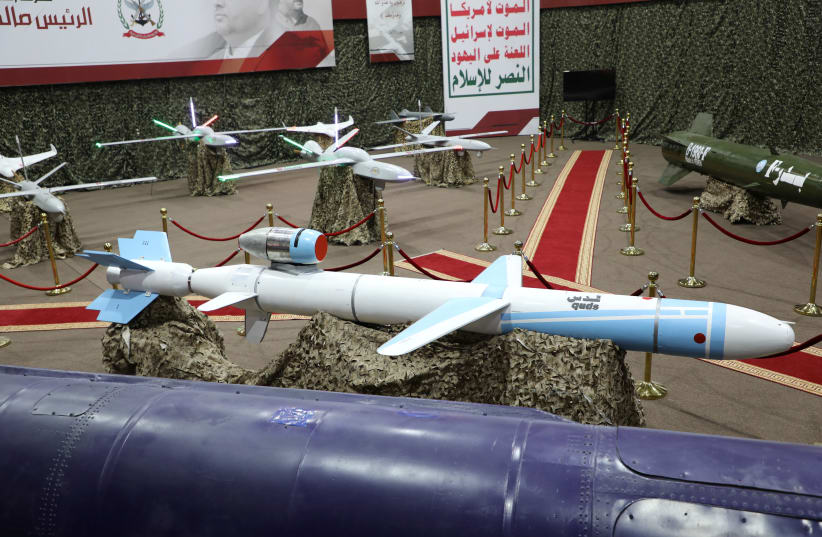
The Iran-backed Houthi militia continued attacks on maritime traffic in the Red Sea and Gulf of Aden on Friday morning, with UK authorities reporting that one vessel was hit by an unknown object, sparking a fire, while another was ordered to alter course toward Yemen.
The first incident was reported at about 6:40 a.m. Israel time, with the United Kingdom Maritime Trade Operation (UKMTO) saying that a small white craft with 10 persons onboard declaring themselves to be Yemeni authorities had ordered a vessel north of the port of Mokha to alter course towards Yemen.
A few hours later, UKMTO reported that a vessel had been hit by an unknown object, sparking a fire, southwest of the Houthi-controlled port of Hodeida. No injuries were reported in the incident.
The AP reported that a cargo ship called the Al Jasrah was hit in the attack, citing an unnamed US defense official and the Ambrey maritime risk management company. The Al Jasrah is operated by the German-based shipper Hapag Lloyd.
A few hours after the attack on the Al Jasrah, UKMTO reported a third unspecified incident southwest of Mokha, adding that authorities were investigating the incident.

Houthis threaten further attacks
On Thursday, the Houthis claimed to have attacked the Maersk Gibraltar with a drone strike and that they had "succeeded in preventing the passage of several ships heading to the Israeli entity during the past 48 hours."
The Houthis stressed that they would "continue to prevent all ships heading to Israeli ports from navigating in the Arab and Red Seas until they bring in the food and medicine that our steadfast brothers in the Gaza Strip need."
US Central Command (CENTCOM) said after the attack on Thursday that the missile fired at the Gibraltar fell short and splashed into the water. "While this incident did not involve US Forces, we continue to closely monitor the situation. These attacks continue to threaten international maritime security," said CENTCOM.
US working to establish coalition to confront Houthis
Axios reported on Thursday night that the US was set to announce a special multinational task force on Friday that would start operating in the Red Sea to deter and counter Houthi attacks.
Go to the full article >>Cabinet approves humanitarian aid through Israel-Gaza crossing

The cabinet approved the entry of humanitarian aid through the Kerem Shalom crossing between Israel and Gaza on Friday to add on to the aid entering the Strip through the Rafah crossing between Egypt and Gaza.
Go to the full article >>Tank commander fell in battle in southern Gaza - IDF

Sgt. First Class Shay Uriel Pizem, 23, from Kibbutz Ein Hanetziv, a tank commander in the 401st Brigade, fell in battle in the southern Gaza Strip on Friday, according to the IDF Spokesperson's Unit.
The IDF announced earlier on Friday that Sgt. Oz Shmuel Aradi also fell in the battle in southern Gaza. Aradi, 19, from Kibbutz Hatzur, was a soldier in the 603rd Engineering Battalion.
Go to the full article >>Israel-Hamas war: What you need to know
- Hamas launched a massive attack on October 7, with thousands of terrorists infiltrating from the Gaza border and taking some 240 hostages into Gaza
- Over 1,200 Israelis and foreign nationals were murdered, including over 350 in the Re'im music festival and hundreds of Israeli civilians across Gaza border communities